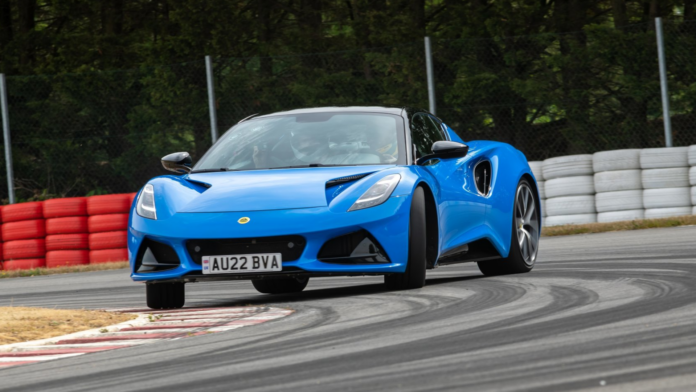There may be a hint of good news coming out of England: Lotus has not ruled out the possibility of a new Emira with hybrid power, meaning the combustion-powered Lotus sports car may yet exist in the future. In a discussion with local publication Autocar, recently appointed European CEO Dan Balmer was asked if such a thing would be feasible, and his response revealed that Lotus is no longer committed to replacing all cars with EVs.
“In today’s world? ‘Never say never’ is the current rule,” said Balmer, “because we have to be open-minded and understand what the marketplace wants and also what technology is available to us at the time. So the potential for hybrid powertrains is there. Equally, the potential for all-EV platforms is there. It’s just a question of what technology is available for the attributes that we spec in a Lotus.”
Okay, but what does that mean for the near future?
Lotus Is Not Launching Anything New For Some Time, And That’s Good
Just a couple of months ago, Lotus revealed an absolutely gorgeous supercar concept that seemed to suggest two-seaters were still high on the priority list. Sadly, this did not have any combustion-powered future, or any future at all; the company dismissed any questions about bringing it into production, saying it was simply a design study from which certain small elements may make production in future electric SUVs.
As for the Emira, Lotus was planning to replace that with a $95,000 EV in late 2027, despite the fact that the current Emira has only had one generation and arrived very late for most customers. But just a week ago, Group Lotus CEO Feng Qingfeng put the brakes on an all-electric strategy.

Add CarBuzz to your Google News feed.
Speaking with the Wall Street Journal, he said that Lotus had “always chosen the best power technology available, whether it’s pure gasoline, pure electric, hybrid or range-extended [EV].” Unfortunately, he said that the company would make a “Super Hybrid” system that would combine ultra-fast charging with a turbocharged gas engine, touting huge driving range. He also suggested that plug-in hybrids were too heavy and too complex, saying that the Super Hybrid engine would charge the battery much faster. That indicates EREVs, where the engine never drives the wheels. Balmer’s comments, however, suggest that regular hybrids are also being considered, as we’re about to explore further.
Why Lotus Needs To Pivot From EVs
There used to be a time when simply uttering the name Lotus was enough to cause any self-respecting automotive enthusiast to sit up and start listening. The sports car manufacturer was associated with the mantra adopted by its founder, Colin Chapman, who said that engineers building a car should “Simplify, then add lightness.” Those days have appeared to be all but behind the company in recent years as it jumped head-first into an all-electric development plan.
Unfortunately, that hasn’t worked out as well as expected, with all of its promised products delayed, and those that have made it here being priced out of the market. Due to 102-percent tariffs imposed on the Chinese-made components in the Eletre, its price in America is double what other markets pay. And let’s not even talk about how much demand there may or may not be for a six-figure EV, or what impact additional tariffs may have on Americans’ spending power.

Related
Lotus Boss Steps Down After Setting Hugely Ambitious Sales Goals
This comes soon after the company posted poor 2023 financial results.
The bottom line is that the Lotus of today is all but unrecognizable from the one carved into the annals of motorsport history and enthusiast lore. And while Lotus is still doggedly determined to find a way to make EVs lighter – it has to, like everyone else – it just can’t do that with the current resources. Therefore, it must consider creating a hybrid Emira, and both current Emira engine suppliers (Mercedes-AMG and Toyota) produce suitable systems.
That’s something enthusiasts may still want, but let’s also not forget the rate of progress that EVs have seen. Several automakers are on the brink of testing solid-state battery production – including Honda and Toyota – and should a breakthrough be made soon, Lotus could well revisit the topic of an electric Elise/Emira replacement. It just won’t get to sell it in the US without finding a local battery supplier, at the least.
“We have to look at the technology available to achieve the attributes that are important to us for those products, and at the right time as well. If were to do it today, then we don’t feel we could achieve that.”
– Dan Balmer, CEO, Lotus Cars Europe
Source:
Autocar


